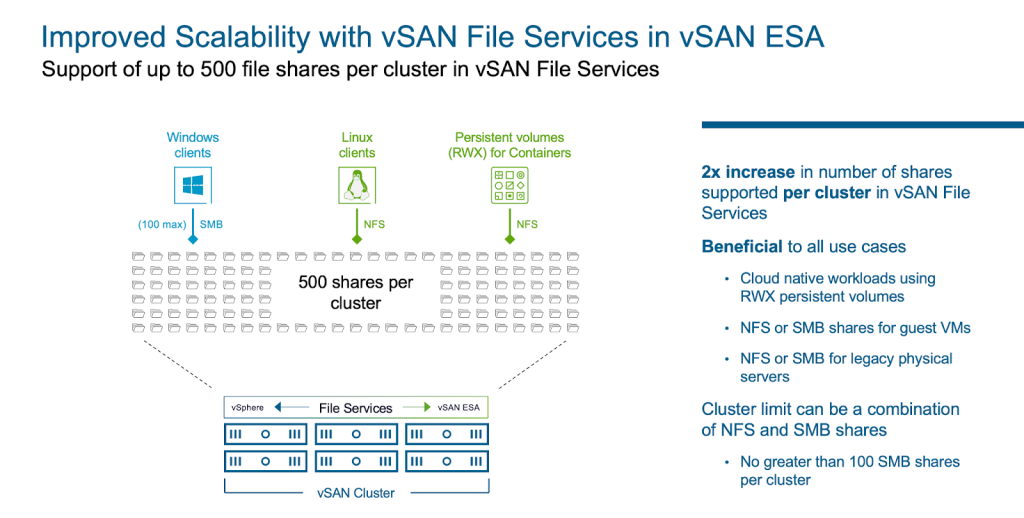VMware vSAN™ file services offers a turnkey solution for standing up NFS and SMB shares for guest virtual machines and containers. Containers can utilize the Container Storage Interface (CSI) to automatically create and configure NFS shares for persistent storage of data made available for container workloads. This removes the need for manual configuration of NFS exports and allows a YAML configuration of file shares seamlessly as part of cloud native workload deployment. New improvements help with scalability and performance improvements.
NFS Scaling improvements
NFS shares maximums have been increased with this release from 250 to 500 per vSAN cluster. This increase will help both HCI vSAN clusters as well as dedicated vSAN storage clusters provide file services to multiple Kubernetes environments.

Improvements have been made to the internal I/O path as well as metadata handling to help with performance, scaling, and memory overhead.
Requirements
These new scaling limits rely on vSAN Express Storage Architecture.
In vSAN in VCF 9.0, each container vSAN instantiates for file serves may be responsible for up to 50 shares (up from 25 in vSAN 8 U3), essentially serving as the mechanism for scaling the quantity of shares supported. For example, a 4 node vSAN cluster with 8 containers running as file servers would be able to provide 400 shares for the cluster. By adding additional static IP addresses and hostnames, additional containers can be scaled up in an environment.
To upgrade to vSAN File Services in VCF 9.0 the following must be updated:
1. vCenter Server to 9.0
2. ESXi hosts updated to 9.0
3. The Disk Format Conversion (DFC) upgraded.
4. Any remaining updates via the File Services VMs (FSVMs) applied.
Conclusion
vSAN file services provide flexible storage for unstructured data. With the launch of VMware Cloud Foundation 9.0, we expect vSAN file services to further expand its usage in cloud-native applications deployed through Kubernetes.
Discover more from VMware Cloud Foundation (VCF) Blog
Subscribe to get the latest posts sent to your email.





